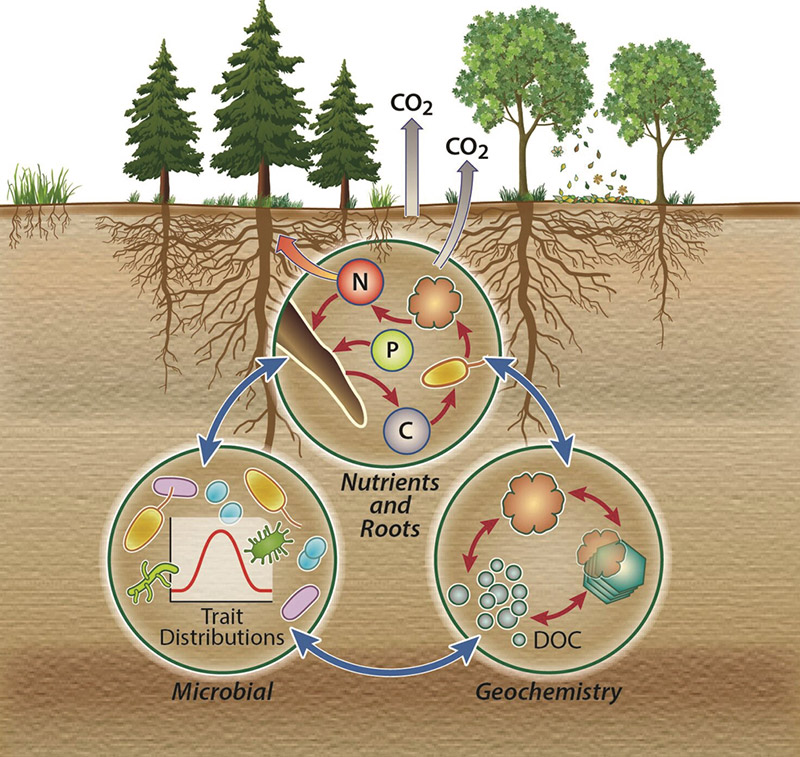Using Beneficial Microbes to Make a Difference
Beneficial microbes are an essential part of the world around us – in the water, in soil, in plants, and animals. In a planet-wide network of processes called “Biogeochemical Cycling” – where nitrogen, carbon, phosphorous, and many other elements are all cycled from one form to another– bacteria play an essential part of every cycle.
When human activity – such as industrial or agricultural processes – impacts an environment, this natural microbial balance is lost. This leads to, for example, farmland with decreased soil fertility, or a watershed that no longer has enough oxygen to support fish growth.
Unleash Organics’ root inoculant contains beneficial microbes that restore the balance necessary for life to flourish in every environment where the product is used.

Restoration of soil fertility and water quality in impacted environments requires bacteria to bring this balance back through biogeochemical cycling processes. It can take years, decades, or even longer to restore these environments without intervention. This is where the products made by Unleash Organics can make a significant difference.
Our goal is to restore the balance necessary for life to flourish in every environment where our products are used. We do this by replenishing the beneficial microbes present, with a particular focus on soil and water in agricultural environments.
Unleashing Growth Potential with a Root Inoculant
Unleash is a plant root inoculant that uses beneficial microbes to restore healthy microbial communities in the soil, particularly in the soil surrounding plant roots, called the rhizosphere.
Rhizosphere microbes consist of a select group of beneficial bacteria called plant growth-promoting rhizobacteria or PGPR which have the unique ability to promote healthy plant growth, to promote high yields, and to restore soil fertility.
PGPR play a key role in making nutrients from both fertilizer and soil – including Nitrogen (N), potassium (K), phosphorous (P) and various other nutrients including trace metals and minerals – available to plants by either “digesting” the nutrients from the soil particles or by cycling the nutrients into a form that can move through soil and that the plant can take up.
PGPR not only provide nutrients to plants, but to other soil microbes important to plant health. In particular, plant beneficial fungi called mycorrhizae also require nutrients made available by PGPR in order to colonize the plant rhizosphere. Mycorrhizae can help form a protective barrier around plant roots, protecting them from pathogenic fungi, and can significantly increase nutrient and water uptake by extending the reach of the plant root system in soil.
PGPR can also help protect plants from abiotic stresses such as nutrient or water deficiency, high salinity, and temperature extremes and from biotic stresses such as various plant pathogens and pests. For example, PGPR can help mitigate the negative effect on plant growth brought about by the increase in ethylene levels the plant makes in response to stressors such as high salinity, or drought.
Taken together, healthy rhizosphere PGPR provide growers with several benefits, including:
- Increased crop yields due to increased nutrient availability;
- Increased stress resistance resulting in healthier plants; and
- Increased efficiency of fertilizer use, which allows growers to reduce the amount of fertilizer applied, resulting in reduced costs and reduced nutrient runoff that can negatively impact local watersheds.

